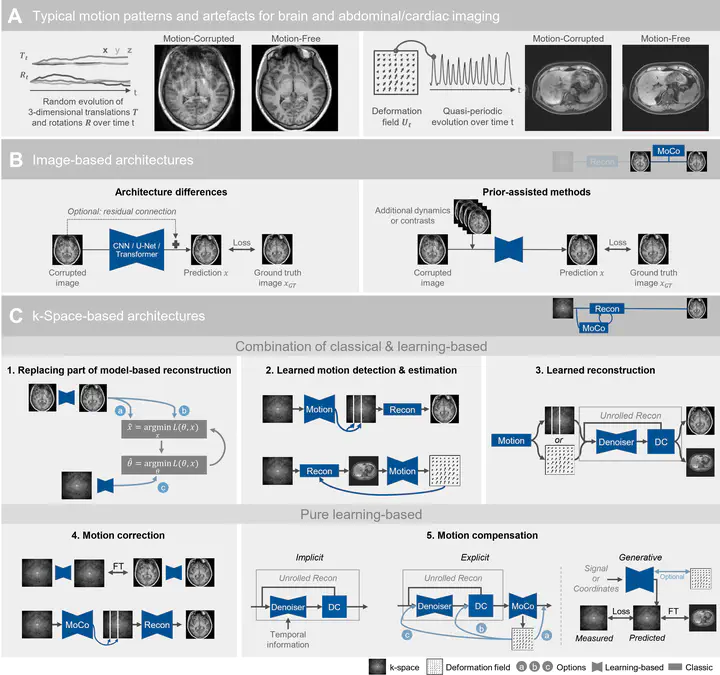 Teaser
Teaser
Abstract
Motion represents one of the major challenges in magnetic resonance imaging (MRI). Since the MR signal is acquired in frequency space, any motion of the imaged object leads to complex artefacts in the reconstructed image in addition to other MR imaging artefacts. Deep learning has been frequently proposed for motion correction at several stages of the reconstruction process. The wide range of MR acquisition sequences, anatomies and pathologies of interest, and motion patterns (rigid vs. deformable and random vs. regular) makes a comprehensive solution unlikely. To facilitate the transfer of ideas between different applications, this review provides a detailed overview of proposed methods for learning-based motion correction in MRI together with their common challenges and potentials. This review identifies differences and synergies in underlying data usage, architectures, training and evaluation strategies. We critically discuss general trends and outline future directions, with the aim to enhance interaction between different application areas and research fields.